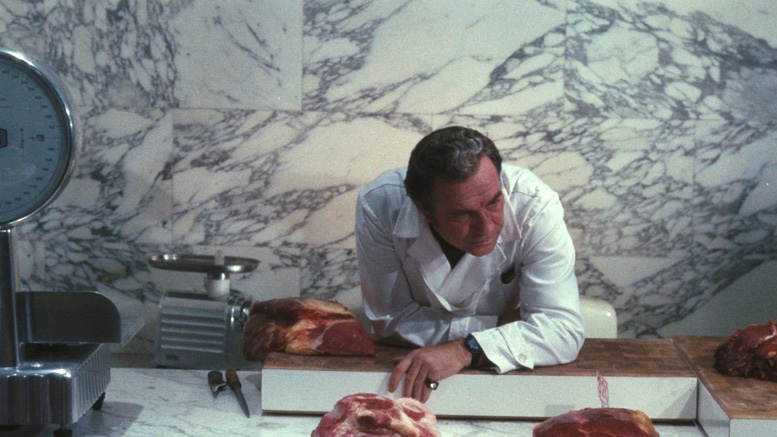 For me, Paolo Sorrentino stands as probably the best director working in Italy at the moment, and his 2004 film The Consequences of Love is my favourite Italian film of the last decade. The Family Friend, his follow up, isn’t in quite the same league, but it’s still very, very good.Giacomo Rizzo stars as Geremia De Geremei, a grotesque, miserly tailor who lives with his domineering, obese mother. Geremia is also a moneylender, providing small loans to desperate people at an exorbitant rate, and somehow believing that in doing so he’s actually doing them a favour. The nearest he has to a friend is Gino (Fabrizio Bentivoglio), a contemplative country and western obessive who also acts as one of his heavies, threatening people who default on their repayments.
For me, Paolo Sorrentino stands as probably the best director working in Italy at the moment, and his 2004 film The Consequences of Love is my favourite Italian film of the last decade. The Family Friend, his follow up, isn’t in quite the same league, but it’s still very, very good.Giacomo Rizzo stars as Geremia De Geremei, a grotesque, miserly tailor who lives with his domineering, obese mother. Geremia is also a moneylender, providing small loans to desperate people at an exorbitant rate, and somehow believing that in doing so he’s actually doing them a favour. The nearest he has to a friend is Gino (Fabrizio Bentivoglio), a contemplative country and western obessive who also acts as one of his heavies, threatening people who default on their repayments.
Geremia’s world is turned upside down when he meets the independantly minded Rosalba (Laura Chiatti), whose parents have borrowed money from him to finance her wedding, and he rapidly becomed enamoured with her. She also reluctantly responds to his attentions, having sex with him in exchange for a reduction in the repayments he’s owed, and Geremia slowly begins to re-evaluate his pathetic life. In the meantime, he’s also approached by the owner of a chain of hotels, who needs a substantial loan to pay for refurbishments, a deal that – if all goes well – could mark Geremia’s move into the big time.
As with the other pre-eminent Italian director of the moment, Gabriele Salvatores, Sorrentino works with genres (rather than being confined by them). This has elements of a gangster movie and thriller, but is also very much a character driven drama (as was Consequences of Love, but this is more experimental and non-linear). Sorrentino has talked of his admiration for Fellini, and that’s evident in the sumptuous visual look of the film, but it actually reminded me more of Elio Petri; a filmmaker who blended surrealism with popular cinematic formats, dealt with obsessive, peculiar characters and whose work was very influenced by architecture.
As such, this is simply jam-packed with memorable images, not all of which have anything much to do with the narrative. From nuns buried up to their necks in the sand, to Geremia’s scuttling through Sabaudia (a town reclaimed from swampland in the 30s and built according to fascist principles) and a peculiar wedding. Sometimes it does become a little overwhelming, and perhaps Luca Bigazzi’s cinematography overwhelms the story, but that’s really part of the pleasure of the production, and one of the key links it has with the golden age of post-neo-realism period Italian cinema.
The UK DVD also includes a bunch of fascinating extras, most particularly a long interview with Sorroentino, in which he explains his approach to writing (developing a plot around the character of someone with an unhealthy relationship with their mother), how Bigazzi and he created the look of the film and – in a very amusing section – his relationship with Rizzo (a particualrly unpropossessing Neapolitan comic with a background that ranges from Vaudeville to Bertolucci (1900), numerous decameroticons and even Al Brescia’s Amazons and Barbarians (75)). The eagle-eyed may also notice that Geriami’s mother is played by Clara Bindi, a long-serving actress who even featured as the inn-keeper in Bava’s Black Sunday!
